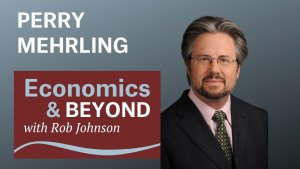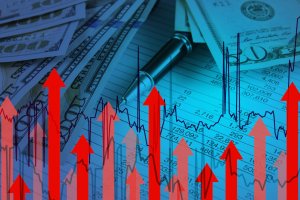Last Thursday, the ECB announced that it would not be raising the policy interest rate, and hinted strongly that it would not be raising the rate in June either. This latter was a surprise, and Mr. Market did not like it much, as reflected in the slide of the euro against the dollar. ( Here is an interview I did about the ECB decision that was taped Thursday morning.)
Now comes news of private meetings on Friday night at which the Greek debt problem was discussed in the context of a possible Greek departure from the euro, news that presumably factored in to the ECB decision on Thursday.
More or less simultaneously with all of this, silver retreated in the context of rising margin requirements, but so did a wide range of other non-monetary commodities in what soon got called a commodity rout.
The Rorschach test is this: Is this inkblot a picture of speculators trying to figure out which of the major currencies is least weak? That’s what Lex says it is.
Or is it a picture of short squeeze, in which those getting squeezed were trying to short all currencies relative to commodities, in a world where even the dollar no longer qualifies as a riskless asset?
The two perceptions are not of course incompatible, so both could be operating, feeding on one another. The important point is that in both perceptions the essential drama is about financial globalization versus the nation state.
In the first perception, Mr. Market is picking among nation states. In the second, Mr. Market is trying to avoid exposure to all nation states.
For me, the inkblot is about the encounter of the modern (nation) state with the modern (financial) market; it is about central banks, Treasuries, and public balance sheets on the one side versus their private counterparts on the other.
Remember the crisis. The way we stopped the collapse was by shifting the problem from private balance sheets to public balance sheets, and that is where it sits to this day. Inevitably, Mr. Market is now looking for a way to avoid the consequences of that shift, by avoiding exposure to the public credit.
The essential drama is about financial globalization versus the nation state. The crisis was the first act of the drama, and we are now living through the first scenes of the second act. This play has a long way yet to run





